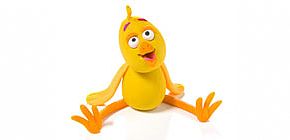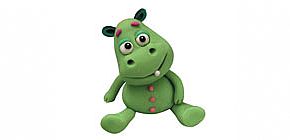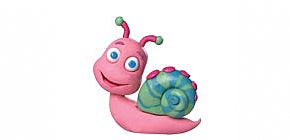Fever in Infants
A Little Drop (Tip Tipa) of Information on the Subject of Fever in Infants
Fever in infants - A cause for concern?
The fever is one of the body’s most effective weapons in the war on viruses and infections. Fever in infants, just as in any person, of any age, is their immune system’s response to “invaders” - viruses and infections. The phenomenon itself is not considered a big deal. Au contraire: a rise in body temperature essentially improves the effectiveness of the immune system’s activities, causing the body’s white blood cells to work better - which ultimately leads to the threat being banished from the body. As such, fevers, even the bodies of infants, are absolutely normal and necessary - they show that the immune system is doing its job, and is even gaining strength. This is why there is no need to immediately intervene in every case of infant fever. That being said, when it comes to infants, you should always be hyper aware of any developing fever, as a rise in temperature can sometimes be accompanied by great discomfort and restlessness. Lowering the fever can help reduce these unpleasant side-effects.
The Association of Pediatricians recommends treating fevers above the 38.5 degree mark.
What are fevers and how do infants develop them?
High fevers are the result of the body’s immune system identifying viruses and infections. As you know, bacteria cannot survive in hot environments. A fever is therefore the body’s way of protecting itself, while eradicating any uncovered bacteria in its midst.
Fevers are pretty rare among adults, but highly common in infants, especially younger ones, for the following reasons:
- During the first months of an infant’s life, their immune system is in a state of continuous development. As a a result, it is more vulnerable to “invaders.”
- The act of immune system development weakens the infant body’s general defense mechanisms.
- Infants are naturally less resilient in the face of illnesses.
Infant body temperature: What is the normal range and when should you take your little one to the doctor?
The question most parents of infants find themselves preoccupied with, with respect to body temperature is: when is their body temperature considered to be normal, and when is it not? While everyone knows that body temperature is 37 degrees, a normal body temperature reading actually ranges between 36.5 and 37.5 degrees Celsius.
And when is body temperature considered to be high? In adults, fever is any temperature above 38 degrees. This is generally true for infants as well. Low body temperature in adults and infants is anything below 35 degrees.
The question begs to be asked: when should you treat a fever and attempt to lower it? The answer depends on the infant’s age, as well as on other factors:
- Fever in infants under six months in age: Infants in their first six months of life are more vulnerable to external threats. If the infant’s body temperature rises above the aforementioned upper limit of normal, they should be taken to a doctor, or even to the emergency room, at once. While severe damage to the infant’s health as a result of a high fever is rare, at such a young age, fever is considered to be critical and requires quick treatment.
- Fever that is over 39.5 degrees following vaccination: vaccinations are weakened or dormant forms of bacteria that penetrate the body, so that the body recognizes the bacteria and develops antibodies against it. That being said, the insertion of a bacteria can cause the body to demonstrate side-effects, including a rise in body temperature. The appearance of fever in infants following vaccination is par for the course. Only take your infant to the doctor if the fever is unusually high.
- Seizures/convulsions: Children under the age of three can experience seizures or convulsions are a result of a sharp rise in body temperature. And while this phenomenon does not usually cause any permanent damage to the child, it does require medical attention. If your child experiences seizures or convulsions as a result of a high fever, take them to a doctor at once.
- Apathy: Your infant’s behavior is the best indicator of their need for medical treatment. As such, when your infant vomits, behaves unusually or apathetically, it is important that you take them to a doctor for a check-up, even if their fever is not particularly high. Conversely, if your infant remains in good spirits despite having a high fever - know that it’s a good sign.
- Fever that lasts longer than three days: In most cases, it’s recommended to let the body “do its thing” and avoid intervening in the immune system’s efforts. But if the fever lasts for longer than three days, medical attention should be sought.
Symptoms of fever in infants
There are a number of symptoms that can indicate the presence of a high fever in infants:
- Drowsiness and apathy
- A relative lack of appetite
- Difficulty breathing
- Changes in crying “habits”
- Reduced communication with the environment
How to check for fever in infants
There are four ways to measure body temperature in infants:
- Rectally
- Orally
- Under the armpit
- In the ear or via the forehead
The last option is the most comfortable for the child, but is the least accurate of them all.
What can fever indicate in infants?
Fever is a natural and effective immune system response to external “invaders.” In infants, fever can indicate the presence of a virus or infection in the body, as well as other things. Fever in infants and toddlers can be caused by a virus sourced in the mother (especially if the fever appears during the infant’s first month of life). A fever can also indicate the presence of bacteria in the blood, or develop into a fever disorder of unknown origin.
How to reduce fever in infants
When not an emergency situation, there are a few ways to reduce fever in infants:
- Administering fever reducing medications (be sure to dose according to the instructions)
- Lukewarm baths for a maximum of 30 minutes at a time
- Brief periods of wrapping the infant in a towel soaked in lukewarm water
- Dressing the infant lightly, in an appropriately warmed room
- Avoid using alcohol-based ointments or old-world remedies.
Other articles on this subject:
German Measles is a common viral illness among infants and children, particularly during this time of year. And while it is not a serious illness and it does pass on its own, it can become a source of concern when afflicting our little ones. What are the symptoms of German Measles and how can you relieve them? Everything you need to know, right here.
|
Thermometer showing a high fever and you’re unsure which fever-reducing medication to administer to your child? Before you head to the doctor or buy a whole stock of medications, it’s recommended that you find out what doctors advise - how to effectively reduce fevers and keep your kids healthy
|
Colds, fevers and other common phenomenon are often attributed to sleeping with the air conditioning on, but most pediatricians believe that using air conditioning is completely safe for infants and toddlers. So why do little ones get sick in the summer? Everything you need to know, right here.
|
It starts off with slight complaints, evolves into crying, tiredness and sometimes a lack of appetite, and after a quick kiss on the forehead, you discover your infant has a fever. We’ve put together a list of all the recommended folk remedies for fevers, as well as those you should discard.
|
In light of the development of several myths surrounding teething, including the “link” between teething and fever in infants, diarrhea, runny noses and more, were studied in multiple medical studies. Read on to discover the studies’ findings.
|
Infants and toddlers suffering from seizures (sudden spasms) can be a source of great anxiety, especially if it’s your first time seeing them in this state. However, it is important that you know that most febrile (fever-induced) seizures pass on their own and cause no long-term damage. How do you care for a seizing infant and what do you do to remain calm? Read on to find out.
|


.jpg)
.jpg)
.jpg)
.jpg)



.jpg)
.jpg)
.jpg)
.jpg)

.jpg)

.jpg)
.jpg)

.jpg)
.jpg)

Contact us